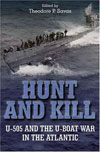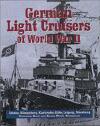In All Respects Ready
Watt, Frederick B.
1985, Prentice Hall, Englewood Cliffs
ISBN 0134536487
Hardcover, 222 pages, 25 b&w photos, 1 map, 1 facsimile
| Type. | Memoir |
| Pros. | Very interesting account of the behind-the-scenes work of preparing convoys for sailing |
| Cons. | Nothing major |
| Rating. |  |
This is the wartime memoir of the Canadian Naval Boarding Service, the purpose of which was to "ensure that each ship to join a convoy for the cruise among U-boats to the mines and bombs of Britain's home waters was 'in all respects ready for sea'." Based in Halifax and starting out with the primary purpose of seeking time bombs which might be stowed by saboteurs among the cargo, under Watt's influence the service expanded its roles to include assessing crew morale; improving morale by addressing complaints, distributing magazines, food and clothing when needed; and defusing tense situations and arresting striking crews under Order in Council P.C. 4751. This order stated that crewmen of Allied cargo carriers using Canadian ports who refused duty could be held in Immigration detention until they agreed to return to duty. The pilot Halifax program was so successful that it was emulated by other Canadian ports.
Watt came to this shoreside assignment reluctantly, and throughout the war was assailed periodically by a yearning to do his duty in battle. The closest this World War I veteran of the Dover Patrol got to the fighting was passage on Andrea Brovig in convoy HX-175. Watt also participated in the convoy meeting for HX-84, which was witness to the admirable sacrifice of Jervis Bay.
Morale among merchant crewmen was such a great problem that at several points in the course of the war authorities felt there was a real danger that shipping traffic would cease, cut dead by striking, deserting, or otherwise mutinous crews. The causes of discontent were plain - poor living conditions and poor shipboard defenses - but solving them was not a task which could be completed quickly. In addition, as the author discovered for himself, discontent could be sown and cultivated by a single person, ruining an otherwise willing crew. Both individuals acting on their own initiative and trained saboteurs were thought to be behind these incitements to mutiny.
Watt's boarding crews were small groups made up of colorful characters, and eventually included some survivors of Jervis Bay. Gaining respect from the merchant crews was crucial to performing their work effectively, and varying shipboard situations required a range of responses from a show of force to the smoothest diplomacy. Overall, the author's experiences filled him with a deep respect for the officers and crews who repeatedly dared the hazards of the Atlantic crossing. He was so impressed by the stories he heard each day that eventually he wrote and published a narrative poem as a tribute to these men, called Who Dare to Live.
This well-written account provides a fascinating look at what happened in port before convoys set out, emphasizing that sometimes just making it out of harbor was more difficult than running the gauntlet of dangers at sea.
Review written by Tonya Allen.
Published on 12 May 2001.
This title is highly recommended.
Return to our main review page.



